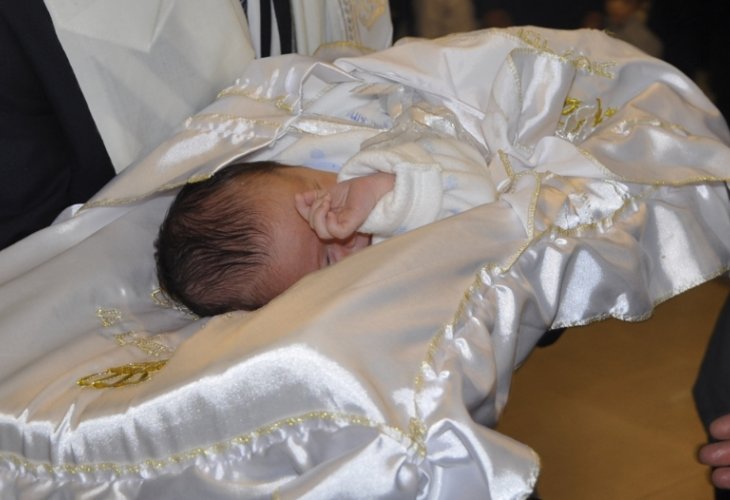Facts in Judaism
Redeeming the Firstborn: A Rare but Powerful Jewish Ritual
What Is Pidyon Haben, Who Is Obligated, and Why This Commandment Is Rooted in Ancient Redemption
 Pidyon HaBen
Pidyon HaBenAmong the many rituals that shape Jewish life, few are as rare, symbolic, and deeply rooted in biblical history as Pidyon Haben, the Redemption of the Firstborn. This unique mitzvah (commandment), performed only under specific circumstances, commemorates one of the formative moments of the Jewish people: their miraculous redemption from Egypt. Though relatively uncommon, Pidyon Haben is a striking expression of Jewish memory, spiritual legacy, and the sanctity of life. It is both a legal obligation and a moving ceremony that connects Jewish families to their ancient past through a sacred act of redemption.
A Sacred Exchange: The Pidyon Haben Ceremony
Pidyon Haben is a positive mitzvah that obligates a Jewish father to redeem his firstborn son from a Kohen. It is one of the 24 priestly gifts (matnot kehunah) given to Aaron and his descendants. The mitzvah applies once the baby reaches 30 days of age, and the ceremony is traditionally celebrated with a public gathering and festive meal.
To fulfill the mitzvah, the father gives the Kohen five silver shekels, either in pure silver coins or an object of equivalent value (approximately 96 grams of refined silver). If the baby’s father has passed away or failed to perform the ritual, the obligation transfers to the child himself upon reaching maturity.
However, the obligation applies only in specific cases. The child must be a firstborn male and the first natural birth of the mother (petter rechem). If the baby was born via cesarean section, or if the mother had previously miscarried, the child is not subject to redemption.
The ceremony itself is rich in symbolism. The baby is dressed in fine clothing and adorned with gold jewelry, which is a symbolic rectification for the sin of the Golden Calf, when such ornaments were misused. He is presented on a silver tray with an embroidered cushion and handed to the Kohen.
The father then declares: “My Israelite wife has borne me this firstborn son. He is the first issue of his mother’s womb. The Holy One, Blessed be He, has commanded to redeem him…” The Kohen asks (in Aramaic): “Which do you prefer, to give me your son, or to redeem him for the five silver shekels you owe according to the Torah?” The father responds: “I prefer to redeem my son, and here is the redemption payment, as the Torah commands.”
A Command Rooted in National Memory
The mitzvah of Pidyon Haben originates in the aftermath of the Plague of the Firstborn in Egypt. As the Torah states: “For every firstborn is Mine; on the day I struck down all the firstborn in Egypt, I sanctified to Myself every firstborn in Israel” (Exodus 13:2). Initially, the firstborn sons of Israel were designated for Temple service, but after the sin of the Golden Calf, their role was transferred to the Kohanim and Levites, who had remained faithful. Since then, firstborn sons have been required to redeem themselves through this ritual act.
Today, the mitzvah is relatively uncommon due to its narrow applicability. A child is only obligated in Pidyon Haben if:
He is a firstborn male.
He is born naturally, not via cesarean section.
His mother has had no previous pregnancies, even miscarriages or stillbirths.
Neither parent is a Kohen or Levite (if either parent belongs to a priestly or Levitical family, the child is exempt).
Because of these factors, less than 15% of Jewish boys born today require a Pidyon Haben. This rarity adds to the mitzvah’s mystique and significance. According to Torah literature, attending a Pidyon Haben is a powerful spiritual opportunity, equivalent to 84 fasts, a teaching derived from a wordplay on “Pidyon” and the Hebrew letters peh-daled (Kesef HaPidyon) whose alphanumerical value is 84.
Though infrequent, this mitzvah remains a meaningful way to honor the sanctity of life, recall our Divine redemption, and reaffirm the covenant between God and the Jewish people.

